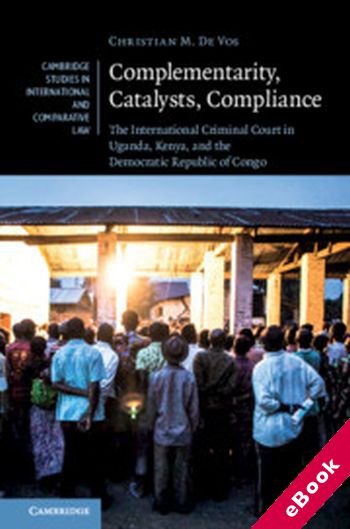
The device(s) you use to access the eBook content must be authorized with an Adobe ID before you download the product otherwise it will fail to register correctly.
For further information see https://www.wildy.com/ebook-formats
Once the order is confirmed an automated e-mail will be sent to you to allow you to download the eBook.
All eBooks are supplied firm sale and cannot be returned. If you believe there is a fault with your eBook then contact us on ebooks@wildy.com and we will help in resolving the issue. This does not affect your statutory rights.
Since its establishment at the turn of the century, a central preoccupation of the International Criminal Court (ICC) has been to catalyse the pursuit of criminal accountability at the domestic level. Drawing on ten years of research, this book theorizes the ICC's principle of complementarity as a transnational site and adaptive strategy for realizing an array of ambitious governance goals. Through a grounded, inter-disciplinary approach, it illustrates how complementarity came to be framed as a “catalyst for compliance” and its unexpected effects on the legal frameworks and institutions of three different ICC “situation countries” in Africa: Uganda, Kenya, and the Democratic Republic of Congo. Linking complementarity's law and practice to contemporary debates in international law and relations, the book unsettles international law's dominant progressive narrative. It urges a critical rethinking of the ICC's politics and a reorientation towards international criminal justice as a project of global legal pluralism.